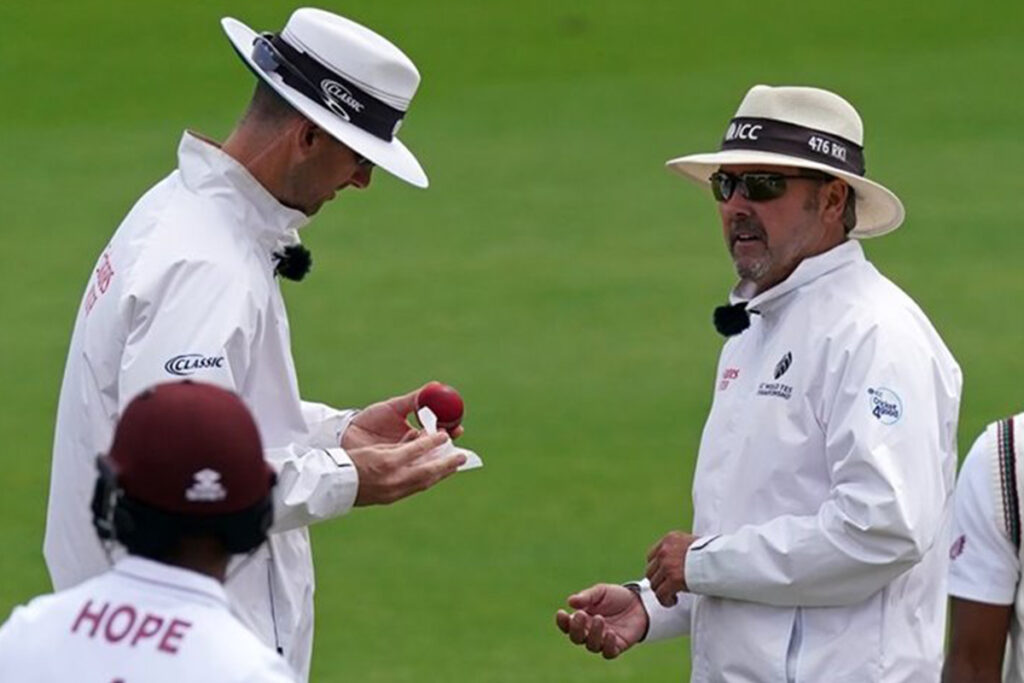On October 1, 2022, several modifications to the Playing Conditions will take effect, according to the International Cricket Council (ICC).
The Men’s Cricket Committee, led by former India captain Sourav Ganguly, suggested changes to the Playing Conditions in the 2017 Code of the Laws of Cricket, 3rd Edition, which was changed by the MCC. The findings and suggestions were also given to the Women’s Cricket Committee, who approved them. The new Playing Conditions, which will take effect on October 1, 2022, will be introduced at the ICC Men’s T20 World Cup in Australia later this month.
The following are the main changes. Batters who are caught returning: Whether or not the batters crossed before the catch was made when a batter is out Caught, the next batter enters where the end the striker was. Before this rule change, if the batters crossed the plate before a catch was completed, the next hitter would be at the non-end striker’s plate and the non-striker would receive the next pitch. The use of saliva to polish the ball has been prohibited in international cricket for more than two years as a temporary Covid-related measure, and it is deemed appropriate for the ban to be made permanent. Enforcement of the ban on the viral transmission on the field was necessary due to the COVID-19 epidemic. The rule was in place when cricket started up again in July 2020; it is now the standard practice. When spitting was forbidden, the players started to sweat, which proved effective in shining the ball.

An approaching batter must now be ready to take a strike within two minutes in Tests and ODIs: In T20 Internationals, the current time limit of 90 seconds applies. The batter’s time to take a strike has been decreased from three minutes to two in ODIs and Test matches. The fielding captain may ask for a timeout if they fail to do so. The right of the striker to play the ball is limited such that they must keep a portion of their body or their bat on the field. If they go past that point, the umpire will signal and declare a dead ball. Sometimes a ball is referred to as a no-ball if it forces the hitter off the field.
Unfair movement by the fielding side: The umpire may now award the batting side five penalty runs in addition to calling for a dead ball if the fielding side makes an unfair or intentional movement when the bowler is advancing toward the bowl. Running out the non-striker: By the Laws, the Playing Conditions moved this way causing a Run out from the “Unfair Play” section to the “Run out” section.
No spit to swing cricket balls: MCC makes significant new laws
Running out a non-striker for too much backing up will no longer be viewed as unfair play; rather, it will be accepted as a standard run-out. Before the introduction of the delivery stride: a bowler might throw the ball to run out the striker if they noticed the batter moving toward the striker’s end. This workout will henceforth be referred to as a Dead ball.

Other significant decisions: The in-game penalty, which was implemented in T20Is in January 2022 (wherein the failure of a fielding team to bowl their overs by the scheduled cessation time results in the necessity of bringing an additional fielder inside the fielding circle for the remaining overs of the innings), will also be used in ODI games following the participant in the 2023 ICC Men’s Cricket World Cup Super League. As a result of teams continuing to maintain a sluggish over rate, the regulation has already been put into place and has lost the team’s games. The second Asia Cup match between Pakistan and India in 2022 serves as an illustration of this. Ganguly thanked all ICC Cricket Committee members for their participation in the recommendations.
- Misleading Video Alters Prime Minister Shehbaz’s Speech Targeting Political Rival, Not His Party - 21/04/2024
- ATC Grants Three-Day Remand for Suspects in Ichhra Bazaar Harassment Case - 19/03/2024
- Pakistan, India, and Bangladesh Lead World in Severe Smog Crisis, Exceeding WHO Guidelines - 19/03/2024


